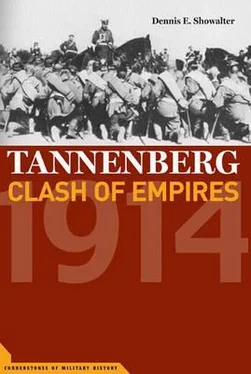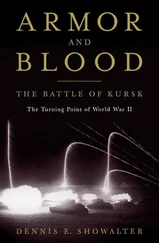The war minister may have been seeking to impress his allies. He many have been the temporary victim of his own enthusiasm. But even if Sukhomlinov saw Russia’s partial mobilization as no more than a legitimate effort to take the current Balkan pot by raising the stakes, this kind of brinkmanship was fraught with risks against opponents who had put too much into the game not to call the bet.
Strategy did not yet determine policy in either France or Russia. By November, Poincaré was complaining that Izvolsky was misrepresenting his position, and insisting that France would support Russia militarily only should Austria and Germany attack her first. 49Sazonov for his part dispatched a series of stern warnings to the Balkan capitals that Russia was not prepared to make war in defense of small-state pretensions. As much to the point, he was increasingly receptive to suggestions that a great-power conference discuss the Balkan question in general, and the Austro-Serbian dispute in particular. 50
Sazanov’s behavior was particularly welcome to Bethmann. It was clear that Germany could not afford simply to follow Austria’s lead in the Balkans. 51At the same time direct attempts at mediating between Russia and Austria were likely to do more harm than good. Austria’s growing weakness relative to her eastern neighbor might force Germany to throw enough extra weight on the Habsburg side of the scale to make her objectivity suspect. On the other hand Russian indecisiveness might generate a repetition of conditions leading to the March, 1909, démarche. Given these undesirable alternatives, Bethmann turned to London, pressing for direct cooperation on the Balkan issue—cooperation in organizing an international conference. 52
Britain was distant and dubious. Cooperation on specific issues, according to Foreign Secretary Sir Edward Grey, was welcome. It must not, however, become the first step in “a political understanding with Germany which would separate us from Russia and France, and leave us isolated while the rest of Europe would be obliged to look to Germany.” In particular the foreign office feared that a Russia again overcommitted in the Balkans might this time abandon the entente for good and all. 53
Despite these reservations, through the fall and early winter British and German diplomats cooperated more or less effectively in preparing for a Balkan peace conference. Then Bethmann played to another gallery. On December 2, he informed the Reichstag in ringing tones that should Austria be attacked by a third party, Germany would fight.
The reference to Russia was unmistakable, and in a German context hardly surprising. A little over a month earlier, on October 28, State Secretary Alfred von Kiderlin-Wächter had been even more open in a speech to the Bundesrat. Austria-Hungary, he declared, must be held responsible for defending her own interests in the Balkans. But should she be faced with a Russian attack, Germany had no choice but to provide assistance. This was not “fighting for Durazzo.” Germany’s ultimate purpose in the Dual Alliance was to sustain Austria’s position as a great power. Otherwise the Reich would be isolated, trapped between France and Russia. 54
Germany’s position was by no means as obvious across the English Channel. The British government was both alarmed at what seemed unnecessary saber-rattling and concerned at the possibility of facing a continental war for which Britain was completely unprepared. In diplomacy as in poker, a good way of winning with a second-rate hand is to overbet it. On successive days Lord Chancellor Richard Haldane and Grey himself informed the German ambassador, Prince Lichnowsky, that Britain would not tolerate a single power dominating the continent. Should Austria invade Serbia, Britain would not remain neutral in any resulting continental war. 55William flew into a rage. In October he had argued that hostilities in the Balkans were no bad thing even if they led to general war. Such a conflict was inevitable sooner or later, and Germany was in a favorable position relative to her potential enemies. 56Now, on December 8, he summoned his military and naval advisors and demanded immediate consideration of the consequences of an Anglo-German war.
This crown council has become a key event in interpretations of Germany’s foreign policy in the immediate prewar years. It has been presented as the beginning of the last stage of a coherent, goal-oriented policy designed to create favorable opportunities for a war of conquest that would destroy the status quo internationally while preserving it at home, giving Germany hegemony in Europe and a correspondingly strong basis for a drive to world power. It has also been described as no more than one of a series of limited responses to immediate situations, an opportunity for an incompetent kaiser and his feckless entourage to discharge their more juvenile emotions without addressing the real problems of a Germany so badly divided against itself that pursuit of any coherent foreign policy was ultimately impossible. In one case the appropriate imperial symbol is a vulture. In the other it becomes a turkey. 57
The direct consequences of the December 8 meeting were marginal. The press was instructed to prepare public opinion for a possible war resulting from an Austro-Serbian conflict. Some general military and economic steps for mobilization were initiated, none of them on the level Russia had pursued in the previous two months. This behavior, however, suggests less about Germany’s intentions than does Kiderlin-Wächter’s memorandum of December 6 to the embassy in London. Its author insisted that no one in Germany was thinking of forcing Russia to retreat, to sacrifice her interests or prestige. Austria-Hungary’s rights vis-à-vis Serbia, Kiderlin argued, were the same in essence as those of France in Algeria or Britain in Egypt. Had Russia committed herself to support Serbia’s demands, one might be able to speak of a backdown, but Russia herself staunchly denied that that was the case. 58
German hostility to south Slav aspirations is frequently described by its critics as an explosive mixture of economic imperialism and self-defeating paranoia. German industrialists and capitalists, according to this interpretation, saw southeastern Europe as both a source of increasingly scarce raw materials and a field for investment and exploitation. At the same time, German publicists and diplomats mistook Russia’s emotional and intellectual sympathy towards fellow Slavs for a developed political position. Slavic identity was for Russia little more than a means of mobilizing and focussing domestic support in crisis situations. A German foreign policy sincerely oriented towards peace should have recognized and avoided the risks of igniting that particular tinder. Germany, however, had never really stabilized its own nationalist forces, much less developed any sympathy for self-determination on the part of peoples viewed as inferior in any case. Instead of getting behind this modern and progressive force, or at least standing out of its way, German policy makers chose to back reaction as embodied in Austria-Hungary, giving the high moral and political ground to Russia with predictable and tragic results. 59
German and Austrian statesmen and opinion makers all too frequently demonstrated regrettable arrogance towards Slavs in general and Serbs in particular. Simplicissimus, that European model of a satiric journal, delighted in portraying the Balkan peoples as vermin-infested barbarians. Serbs never surrender, asserted one cartoon, because they can never find a white flag clean enough to be convincing. Moltke the Younger’s comparison of Serbian aspirations to an abscess, threatening to poison the body of Europe and best cauterized with a red-hot iron, reflected an even more significant lack of empathy. 60
Читать дальше












